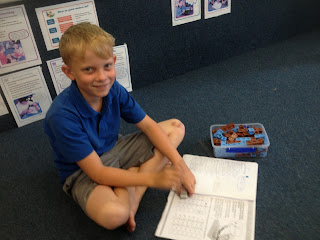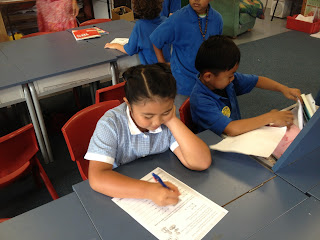
Communities Concept
The Term One Concept at St Mary's School in 2013 is Communities. The children looked at different types and sizes of human communities and how they function. The children also looked at the roles and responsibilities of everyone living in various communities. They learned that the word 'interdependence' means everybody relies on everybody else in any community.
The children then learned about ant communities and how they work and compared them to bee communities.
The children completed a compare and contrast map to plan their writing assessment and then wrote about the similarities and differences between ant and bee communities.
Some children are also preparing information boards using the Comic Life app on the i-Pads.
The children helped research information about bee and ant communities and this information was displayed in posters.One interesting thing that we learned is that ants are very strong for their size. They can lift up to ten times their own weight. That is like Mr Bach lifting ten adults above his head. Actually he can only lift nine!!!!!!?
Ants can farm aphids for the honeydew (liquid food) that oozes out of the aphids backs. In return the ants protect the aphids from predators, including fighting off larger ladybirds.The aphids are free to drink sap from the plant to eat themselves and provide more honeydew for hungry ants. The ants and aphids rely on each other.
Bees are also interesting insects that live in large communities like ants. Unlike ants, all bees fly and when a worker bee finds a special pollen or nectar source she performs a dance to tell other bees. The type of dance tells the other bees in what direction and how far away to fly to find the pollen.
We also learned that the Maori for communities is He Hapori and that the various levels in the Maori community are very important to the health and the flow of life in the Maori world.



















